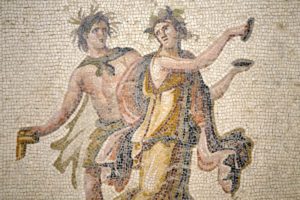I’ll be concluding my series on Ruth with reflections on chapter 4 today (See Part 1, Part 2, and Part 3). I have had such a great time studying Ruth, not only with other women, but especially hearing men’s perspectives. I know that often times when people hear about Ruth, they automatically assume it is a women’s Bible study, but I have seen so much more depth and richness to the book studying it in a co-ed context, and this book really is for the church as a whole, not just for women.
This past week we discussed the idea of redemption as it is one of the key themes in the book, and is made most prominent in the conclusion of chapter 4 as Boaz becomes Ruth and Naomi’s kinsman-redeemer. The whole idea of the kinsman-redeemer is another evidence of God’s compassion for his people, and for the poor and widows, as he makes a provision for them in His law. During the year of Jubilee, the nearest relative of a poor person was to redeem the land that was sold (Lev 25:5). Even though the Israelites did not follow God’s law about the Year of Jubilee, he still instituted these plans for their provision. The kinsman-redeemer was responsible, not only for redeeming property, but it also included: redeeming kinsmen who were sold into slavery; avenging the killing of a clan relative; acting as a recipient of money for a wrong committed to a deceased relative; assisting in a lawsuit so that justice is done; redeeming the wife of the deceased by continuing his lineage; and restoring a clan widow and caring for her. The provision of levirate marriage also shows how God created provisions for the widows, by having the brother or closest relative of the deceased husband make her his wife, so that she can bear a son who will provide for her (Deut. 25:5-10). The role of the kinsman-redeemer and Levirate marriage is not obligatory, as the redeemer must be willing to perform this service to the family.
Since Boaz wanted to do things the right way and knew about a kinsman who was closer to Ruth and Naomi, he gave the opportunity for the nearer relative to redeemer her. Yet, when the kinsman declines the opportunity to redeem them, Boaz willingly takes on this role of kinsman-redeemer, to redeem Ruth and Naomi from their destitute state. In this way, he displays one act of redemption. This one act of redemption perpetuates a whole line of redemption as Ruth gives birth to Obed through Boaz, who is the father of Jesse, who is then the father of David. And, we know, on this side of things, that Jesus, our ultimate Redeemer, comes from the line of David. It is amazing to see how one act of redemption can have effects for generations to come, and which in turn, affect the rest of history. God’s redemptive plan was at work in Boaz’s act of redemption, even though Boaz and Ruth themselves had no idea about the implications of their faithfulness to God, in being open to being his instrument of redemption.
It is encouraging to see the ways God is at work in the whole story of Boaz, Ruth, and Naomi as it is clear picture of His redemptive story, and a foreshadowing of what is to come through Christ. I am encouraged by the power of relationships in this story, seeing how the love and care other people give can affect a whole community, and generations to come. Getting a glimpse into redemptive history and seeing how God has been at work in the past challenges me to be open to His redemptive work in the present.





1 Comment
Leave your reply.